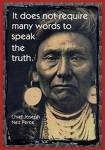
Just recently finished
Dinner at the New Gene Cafe, an interesting non-fiction book about genetically-engineered crops, by Bill Lambrecht, a reporter for the St. Louis Dispatch. When I took horticulture in college, I remember how biotechnology was greeted with such reverence--how "golden rice", engineered to have more nutrients than standard white rice, could save the Third-World starving, how Bt-resistant crops could reduce pesticide use... And now, it's 2007, and even the
The Honolulu Advertiser
, which perpetually "breaks" stories years after they were hot-ticket news, just a few days ago featured two biotechnology stories that illustrate the schism that's arisen over biotechnology and genetic engineering. One story extolled the virtues of Bt-cotton and how it'd increased crop yields, due to the virtual elimination of the pink bollworm, a major pest. The other story reported Meadow Gold Dairy's announcement that it will not use products from cloned cows, even though the FDA has ruled that there seems to be no difference in the milk from cloned, versus regular bovines.
The pluses to biotechnology, as I see it--though they are fewer in number than the negatives, they are indeed major advantages.
1. Control over technology will allow humans to systematically and more quickly select the qualities we desire in our crops, e.g. lower fat, higher nutritive content, more attractive appearance, as opposed to use of conventional cross-breeding.
2. By engineering plants for resistance against pests, we create more favorable environmental conditions through reduction in pesticide use.
3. Greater production yield, which in the case of food crops, may translate into feeding more hungry people.
The negatives to biotechnology:
1. Internationally, the spectre of global takeover of local industries and businesses.
2. Loss of cultural practices and ways of life, e.g. the saving of seeds, vs. having to plant crops from seed every year, due to so-called "Terminator" functions encoded in the plants that render the seeds from these crops infertile, in order to preserve company profits and patents. Also, opponents to GMOs argue that greater acceptance of engineered-crops will eventually lead to agricultural monoculture practices: that is, over-reliance on a single crop, rather than diverse plantings.
3. Loss of control over the integrity of one's crops, and consequently, the loss of control over the quality and integrity of the food we consume: who's to say what happens, for example, if genetically-modified crops accidentally pollinate the organic, non-GMO crops down the road, or contaminate the soil for future plantings.
4. The loss of genetic diversity.
5. The unknown: Because biotechnology is relatively new, we do not know its long-term effects: if/how bioengineered organisms will affect the soil, our environment, or our health. European countries argue for protection clauses, arguing that governments ought to be able to exercise controls against possible, but as of yet, undiscovered, negative effects--though detractors might argue that such arguments, because they're not based on hard-core evidence, simply mask protectionist tendencies. Also, it's possible that if we rely too much on genetic engineering for pest-control, we'll end up creating a greater problem, by creating resistant "super-pests".
The topic's an intriguing one, deserving further investigation. As consumers, we ought to know the sources of our food--companies need to be responsible for clear labeling of products containing GMO-derived products, so the public can make educated choices. It also disturbs me that the biotech companies have shown historical resistance to disclose information about their products to the public--until this becomes common practice, buying local and organic products might prove a wise option.






